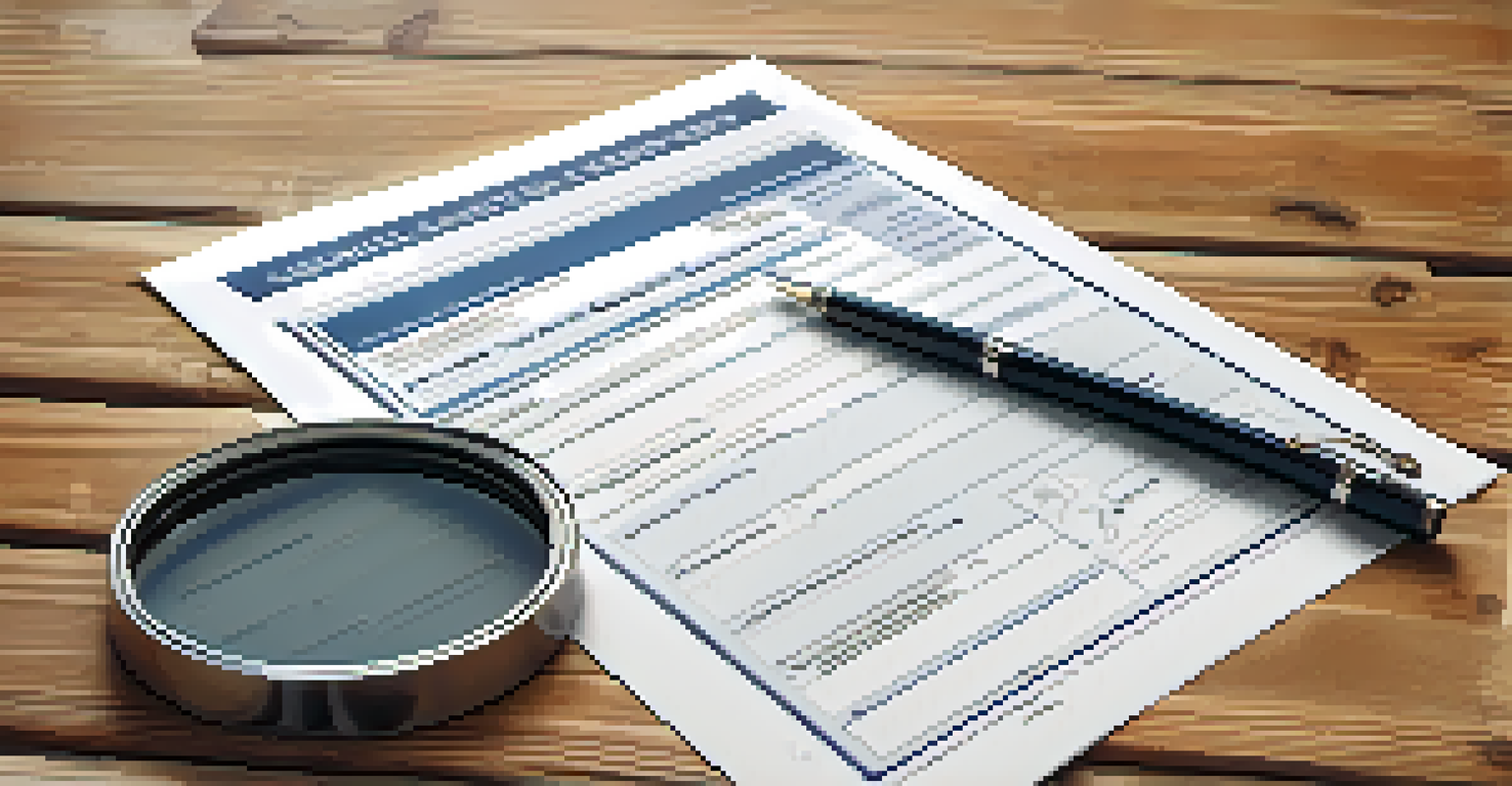The Inspection Process: What Homeowners Should Know

What is a Home Inspection and Why is it Important?
A home inspection is a thorough examination of a property's condition, usually conducted by a professional inspector. This process helps identify issues that may not be visible to the naked eye, ensuring that potential buyers are aware of the property's true state. It's crucial because it can save homeowners from unexpected repair costs down the line, providing peace of mind.
An ounce of prevention is worth a pound of cure.
For buyers, a home inspection is an essential step before finalizing a purchase. It can uncover hidden problems like structural issues, plumbing leaks, or electrical faults. Knowing these details can empower buyers to negotiate repairs or even reconsider their purchase if the issues are extensive.
For sellers, getting a pre-listing inspection can be beneficial as well. It allows them to address any issues before putting the house on the market, which can lead to a smoother transaction and potentially a better selling price.
How to Prepare for a Home Inspection
Preparing for a home inspection can feel overwhelming, but it doesn't have to be. Start by ensuring that the inspector has easy access to all areas of your home, including the attic, basement, and garage. Clear away any clutter and make sure that all utilities are turned on, as inspectors will need to test systems like heating, cooling, and plumbing.

Another helpful tip is to provide the inspector with any maintenance records or warranties for the home’s systems and appliances. This transparency not only helps the inspector but can also work in your favor by showing that you have taken good care of the property over the years.
Lastly, consider being present during the inspection to ask questions and get immediate feedback. This will not only help you understand any potential issues but also give you insight into the overall condition of your home.
Common Issues Found During Home Inspections
Home inspections often reveal a variety of common issues that can catch homeowners off guard. These might include roof damage, outdated electrical systems, or plumbing leaks. Knowing what to expect can help you feel more prepared and less anxious about potential problems.
The best way to predict your future is to create it.
One of the most frequently noted issues is inadequate insulation or ventilation, which can lead to higher energy bills and uncomfortable living conditions. Other common findings include mold or mildew, which not only affects the home’s value but can also pose health risks.
Understanding these common issues can also help you prioritize which repairs or upgrades to tackle first. By addressing these problems early, you can enhance your home's safety, comfort, and value, making it a worthwhile investment.
The Role of the Home Inspector
A home inspector plays a vital role in the home buying or selling process. They are trained professionals responsible for identifying potential problems and ensuring that the property is safe and sound. Their goal is to provide an unbiased evaluation of the home’s condition, which is essential for informed decision-making.
During the inspection, they will assess various aspects of the home, including the foundation, roof, plumbing, and electrical systems. Their findings are compiled into a detailed report that outlines any issues and typically includes recommendations for repairs or further evaluation by specialists.
It's important to remember that inspectors are not appraisers or contractors; their role is purely to inform you of the condition of the home. Building a good rapport with your inspector can also lead to a better understanding of the issues at hand.
Understanding the Inspection Report
Once the inspection is complete, you'll receive a report detailing the findings. This document is crucial as it highlights any issues that need attention and helps guide your next steps. While it may seem overwhelming at first, understanding the report can empower you as a homeowner.
The report will typically categorize issues into three groups: minor, major, and safety concerns. This classification helps you prioritize repairs and decide whether to negotiate with the seller or handle the fixes yourself. Don't hesitate to ask your inspector for clarification on any terms or findings that are unclear.
It's also wise to keep the report on hand for future reference, especially if you plan to sell your home down the line. Addressing the noted concerns can increase your home's value and appeal to future buyers.
Negotiating Repairs After Inspection
After receiving the inspection report, homeowners often find themselves in a position to negotiate repairs with the seller. This step is crucial because it can significantly impact the final terms of the sale. If major issues were uncovered, you might ask the seller to fix them before closing or offer a credit towards the repairs.
It's essential to approach negotiations with a level head. Focus on the most critical issues outlined in the inspection report, as minor aesthetic concerns may not warrant significant concessions. Being prepared with estimates for repairs can also strengthen your position during negotiations.
Ultimately, the goal is to reach a fair agreement that satisfies both parties. Strong communication and a collaborative attitude can lead to a successful resolution that keeps the transaction moving forward.
Post-Inspection Steps for Homeowners
After the inspection and any negotiations, it’s time to take action. If repairs are needed, prioritize them based on urgency and budget. Tackling major issues first can prevent them from escalating into larger problems, saving you time and money in the long run.
If you’re not planning on making immediate repairs, consider scheduling regular maintenance checks. This proactive approach can help catch any emerging issues before they become significant problems. Think of it as a routine check-up for your home that keeps everything running smoothly.

Lastly, keep an eye on the market and stay informed about property values in your area. This knowledge can help you make better decisions regarding your home in the future, whether it’s selling, refinancing, or simply maintaining your investment.